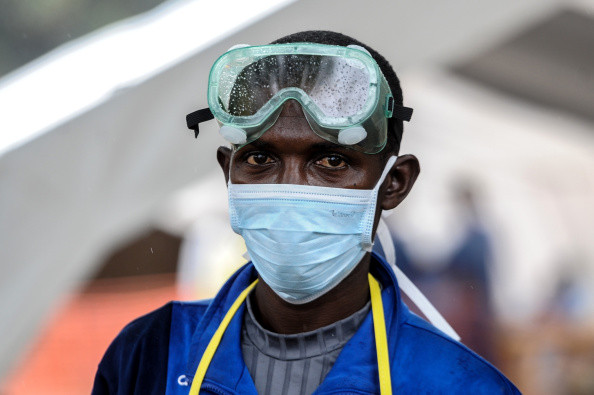Sierra Leone: Jail Time for Hiding Ebola Patients

A new law has been passed in Sierra Leone that can possibly impose jail time for anyone found hiding an Ebola patient, reported Deseret News.
The World Health Organization believes the practice of hiding Ebola victims has been the core reason behind a major under-estimation of the virus outbreak.
The new law that was passed on Friday (22 August) and is awaiting presidential approval, imposes a jail time of up to two years for anyone found in violation of the law, confirmed lawmaker, Ansumana Jaiah Kaikai.
Inaccurate figures
A total of 1,427 people have died due to the Ebola outbreak with 2,615 reported infections, reported the World Health Organization on Friday (22 August).
Yet, the figures remain inaccurate as some families have reportedly resisted cooperation with government officials and built isolation centres to hide Ebola victims in their communities fearing the stigma following positive diagnosis, reported the UN health agency.
The agency further confirmed that previously undetected "invisible caseload" of patients have poured into new treatment centres in Liberia.
Sierra Leone accuses Developed nations
Abandonment and isolation from those we viewed to be our biggest friends. These ugly developments are evidenced in the cancellations of flights, closing of borders, reduction of operational hours of banks and further isolation by shutting down businesses at the time of greatest need.
Following travel restrictions and border closures imposed by several countries, including South Africa and Ivory Coast, officials in Sierra Leone feel abandoned.
Sierra Leone majority leader, Ibrahim Bundu, said on Friday (22 August) that his country has suffered, "abandonment and isolation from those we viewed to be our biggest friends."
Bundu added: "These ugly developments are evidenced in the cancellations of flights, closing of borders, reduction of operational hours of banks and further isolation by shutting down businesses at the time of greatest need."
Most recently, the Philippine government announced yesterday (23 August) that it is recalling 115 peacekeepers from Liberia.
The news of the new law comes as a British man who caught the ebola virus in Sierra Leone arrives in the UK on a Royal Air Force jet.
© Copyright IBTimes 2025. All rights reserved.






















